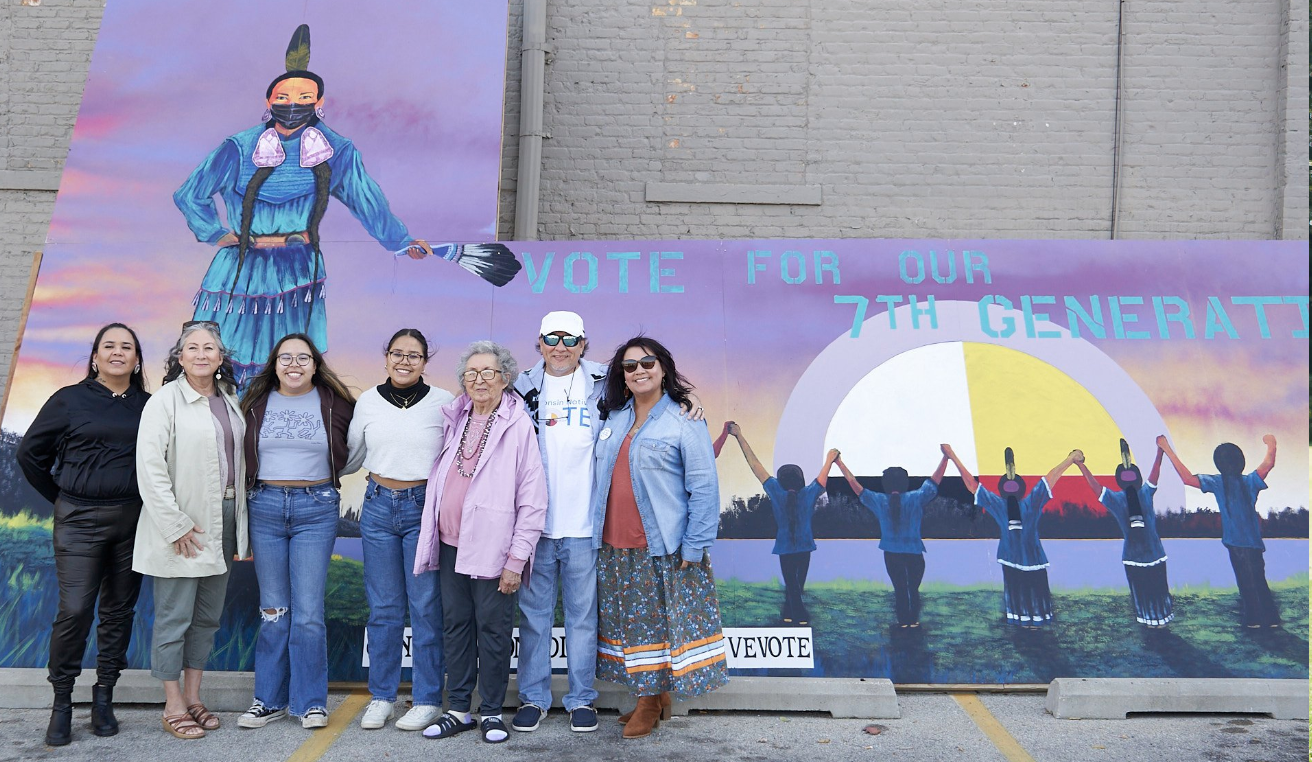
- Details
- By Neely Bardwell
As Election Day approaches on April 1, 2025, Wisconsin Native Vote, a Wisconsin-based organization dedicated to mobilizing the Native vote, is hosting a series of nonpartisan community meals to raise awareness about the significance of the Supreme Court election and address the lack of information about the upcoming vote.
Susan Crawford and Brad Schimel are running for a 10-year term on the Wisconsin Supreme Court following the retirement of Incumbent Justice Ann Walsh Bradley, but The Marquette University Law School poll released Wednesday found that most voters don't know enough about the two candidates running in the Wisconsin Supreme Court election.
Wisconsin’s Democratic Party has endorsed Crawford, current trial court judge, and Schimel is the former Republican attorney general and current trial court judge.
The Marquette University poll surveyed 864 registered voters between Feb. 19 and Feb. 26 with a margin of error of 4.6 percentage points. It did not ask people who they plan to vote for in the April 1 election. However, the survey did gauge how voters feel about both of the supreme court candidates.
Among registered voters surveyed, 29 percent had a favorable opinion of Schimel, 32 percent viewed him unfavorably and 38 percent said they didn't know enough. Previously, Schimel ran two statewide campaigns in Wisconsin, winning his 2014 bid for attorney general but narrowly losing his 2018 campaign.
For Crawford, who is running her first statewide campaign, 19 percent viewed her favorably compared to 23 percent unfavorably and 58 percent saying they don’t have enough information.
This is a big election for the Democrats, as their newly found majority could be at risk. In 2023, the election flipped the ideological majority on the court in favor of Democrats for the first time in over a decade. If Schimel wins the seat, that majority could flip back.
So far, the Wisconsin Supreme Court race has seen more than $33 million in spending, So far, around $20 million of that has been for the Republican side, meaning much more of the money is benefiting Schimel rather than Crawford. Wisconsin political commentators predict this race will again be the most expensive judicial election ever.
To help educate Wisconsin Native voters on how important this election is for Native issues, Wisconsin Native Vote is hosting three community meals serving as a welcoming space for community members to share a meal, connect with neighbors, and learn about how the Wisconsin Supreme Court’s decisions may impact Native concerns.
The Wisconsin Supreme Court plays a crucial role in decisions that affect Native communities, and might decide cases that impact water protection, Tribal sovereignty, the Indian Child Welfare Act, voting rights, and reproductive health.
Allison Neswood (Diné), Native American Right Fund Staff Attorney, is expected to speak at these meals.
The dates and locations of the meals are below:
Monday, March 10 | 6 p.m.
Menominee Community Dinner
Menominee Nation College, Culture Building
172 WI-47 #55, Keshena, WI 54135
Tuesday, March 11 | 11:30 a.m. to 1 p.m.
Milwaukee Community Luncheon
Indian Council of the Elderly
944 N 33rd St, Milwaukee, WI 53208
Thursday, March 13 | 5 to 8 p.m.
Bad River Community Dinner
Bad River Lodge & Casino, Madigan Room
73370 US-2, Ashland, WI 54806
More Stories Like This
Native News Weekly (August 25, 2024): D.C. BriefsNavajo Nation Mourns the Passing of Former Vice President Rex Lee Jim
Deb Haaland Earns Endorsement From Communications Workers of America Local 7076
University Soccer Standout Leads by Example
Two Native Americans Named to Democratic Congressional Campaign Committee's“Red to Blue” Program
Help us defend tribal sovereignty.
At Native News Online, our mission is rooted in telling the stories that strengthen sovereignty and uplift Indigenous voices — not just at year’s end, but every single day.
Because of your generosity last year, we were able to keep our reporters on the ground in tribal communities, at national gatherings and in the halls of Congress — covering the issues that matter most to Indian Country: sovereignty, culture, education, health and economic opportunity.
That support sustained us through a tough year in 2025. Now, as we look to the year ahead, we need your help right now to ensure warrior journalism remains strong — reporting that defends tribal sovereignty, amplifies Native truth, and holds power accountable.
 The stakes couldn't be higher. Your support keeps Native voices heard, Native stories told and Native sovereignty defended.
The stakes couldn't be higher. Your support keeps Native voices heard, Native stories told and Native sovereignty defended.
Stand with Warrior Journalism today.
Levi Rickert (Potawatomi), Editor & Publisher

